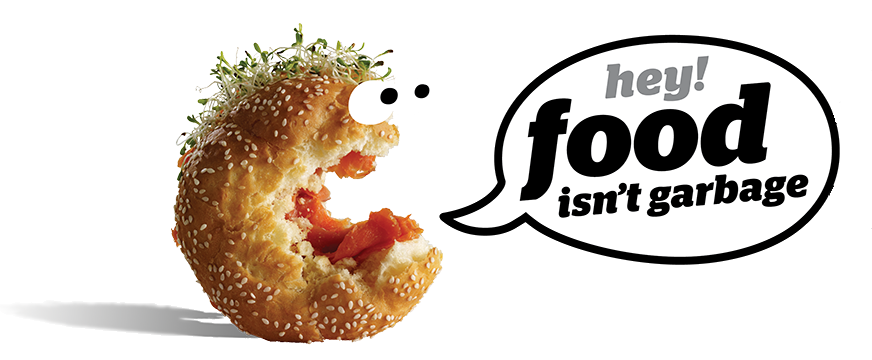Organics Disposal Ban
 Ridge Meadows Recycling Society supports the diversion efforts of Metro Vancouver.
Ridge Meadows Recycling Society supports the diversion efforts of Metro Vancouver.
This means residents and businesses are now required to separate organic materials like kitchen scraps and yard trimmings from their regular garbage.
The Organics Disposal Ban applies to everyone in the region
Food scraps separation has been mandatory for residents and businesses in Metro Vancouver since January 2015. This applies to apartments and condos as well as detached homes.
Like with other recyclable materials, Metro Vancouver has placed a disposal ban on organic materials, like food scraps. This means food is banned as garbage at the region’s waste facilities. Disposal bans are an enforcement tool that encourage recycling. A penalty is charged on loads of waste that contain excessive amounts of visible food scraps.
WHAT GOES IN THE GREEN BIN?
- All food, including produce, grains, dairy, and meat
- Prepared food (leftovers)
- Shells (egg shells, seafood shells) and bones
- Small amounts of fat, oil, and grease
- Wooden chopsticks, skewers, popsicle sticks
- Coffee grounds and filters, tea bags
- Food-soiled paper, like napkins, and food-soiled newsprint (often used to line a kitchen catcher)
From www.metrovancouver.org:

The Organics Disposal Ban is a commitment on the part of all of us to change the way we manage our waste. By taking food scraps out of the garbage we are:
· Reducing the amount of methane coming from our landfills, generated when food decays in poor conditions.
· Taking the pressure of landfill space, which is limited. Currently about 30% of our food ends up there.
· Making our waste to energy facility, which takes about a third of the region’s waste, more effective by reducing the moisture content of the waste being incinerated.
· Turning the food scraps into compost and biofuel, which can grow more food, or help avoid using fossil fuels.
The ban applies to all garbage generated across the region, from Lion’s Bay to Langley.
The way we manage our waste is changing. Metro Vancouver is responsible for long term planning and disposing of the waste generated by residents and businesses in the region. Managing the waste system needs to be responsive to our citizen’s expectations of high environmental stewardship, as well as being kept affordable.
Organizations and individuals have demonstrated commitment to the success of this regulation, through establishing residential and commercial food scraps recycling programs throughout the region. Member municipalities are supporting residents so that most single homes have a food scraps collection program available.
An expanding resource collection is available to you, including:
· how-to guide to getting a food scraps recycling program for apartments and condos started, as well as a companion brochures for residents (order copies at 604-432-6200);
· a guide for restaurants, generated by the local restaurant operators;
· an online guide to improving recycling in residential buildings;
· recommended colour schemes for recycling programs, to promote region-wide consistency;
· online posters and artwork from the ‘Food isn’t garbage’, talking food campaign, which is popular in classrooms, staffrooms, and institutions;
· online resources on food waste reduction from the popular Love Food Hate Waste campaign.
For More Information about the regulation:
If you have questions please contact the Metro Vancouver Information Centre at 604-432-6200.”

For tips on reducing your food waste, visit the Love Food, Hate Waste website.

